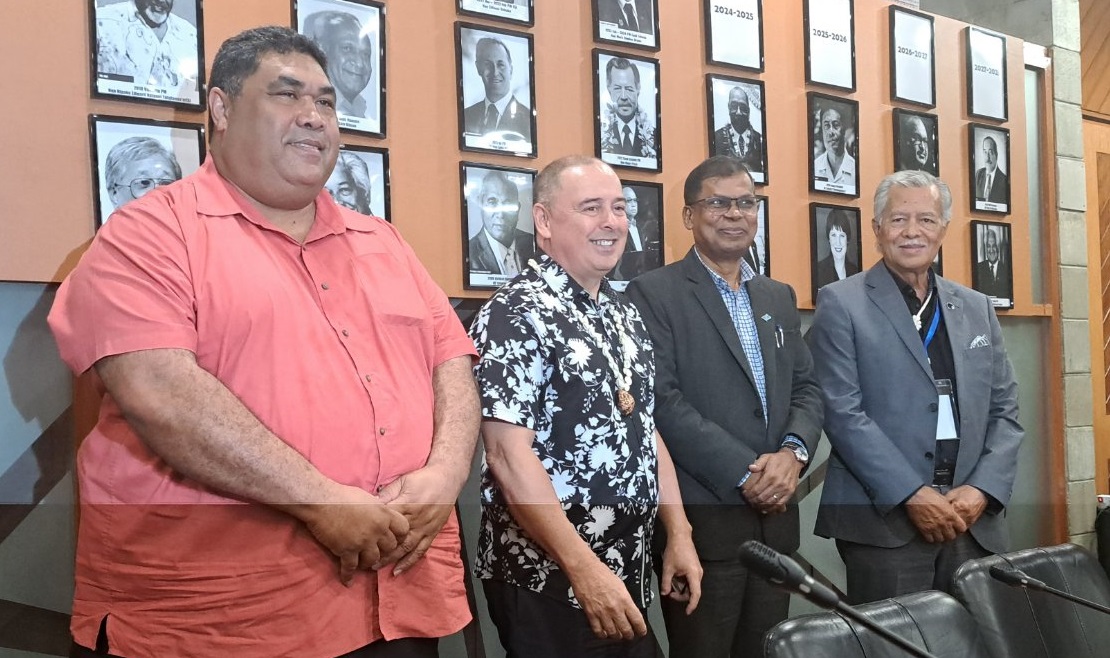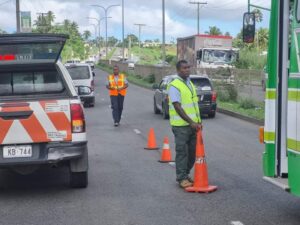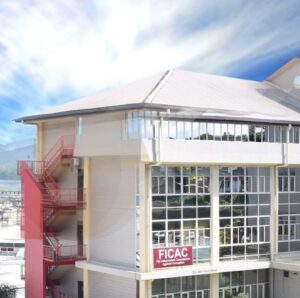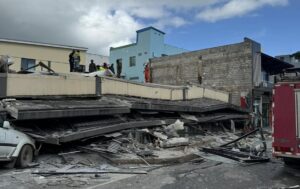Forum Economic ministers concluded their 26th meeting in Suva yesterday during which they discussed various economic challenges and opportunities including concerns about correspondent banking relationships, climate finance strategies, disaster risk financing, the Pacific Resilience Facility, as well as labor mobility schemes.
During discussions, concerns were raised about correspondent banking relationships in the Pacific region, as some banks are derisking their involvement in certain countries.
FEMM Chair and Cook Islands Prime Minister Mark Brown said given the importance of Correspondent banking relationships which are crucial for financial structures and enabling international transfers, trade, and remittances, they have welcomed Australia and New Zealand’s input to addressing some of these concerns.
“The FEMM has tasked the Secretariat here to work with the World Bank to prioritise recommendations and progress the implementation of regional recommendations with the support of relevant development, but also in consultation with members through to the next economic ministers meeting,” Brown said.
Climate finance was also a focus, with the need for increased climate action and a coordinated approach to accessing climate funds. A regional climate finance roadmap is being developed to pool different financing sources for climate initiatives.
For disaster risk financing, a Pacific Regional disaster risk financing roadmap and guidelines were approved. Member countries are encouraged to develop national strategies with the help of a technical working group.
A notable achievement was the approval of the redesigned Pacific Resilience Facility (PRF). First proposed six years ago the PRF aimed to attract funding for Pacific adaptation measures.
“Pacific countries have for a number of years voiced their concerns and the difficulty in accessing climate finance. So what we have done over the last few years in particular the last year 18 months, is redesigned this proposal for a Pacific resilience facility that will be targeted to development partners to put their funds into and used for Pacific adaptation measures, specifically for Pacific countries. We see this as one way to enable funds to be freed up quicker to our members in the Pacific countries to address climate and resilience initiatives, which in many cases can be quite small scale and thereby make it difficult to fund when we do go through formal channels. So we’re very pleased that our membership has approved the implementation of the redesign of the Pacific Resilience Fund.”
This facility will go for formal approval at the leaders’ meeting in November in the Cook Islands.
The FEMM also heard from the Pacific Investment Fund. The PIF comprises sovereign wealth funds, looking at investing over $90 billion in viable infrastructure projects in Pacific Island countries.
“Of course, these particular funds would need to be effective for their members would need to attract a return so there will be specific types of investment that would suit this particular investment plan. Particularly those that do have a revenue stream attached to them. So the presentation was well received by ministers and we support the investment fund co-investment platform to identify commercially viable infrastructure projects for investment by our prominent sovereign wealth and super funds in the Pacific countries.”
Labor mobility’s economic implications were also discussed, acknowledging the benefits of earning income and remittances through labor mobility schemes, as well as concerns including worker welfare, exploitation, and the impact on domestic labor forces. The ministers reaffirmed the importance of including comprehensive social and economic prospecting assessments of the cost benefits and social impacts of the regional labor schemes in the development of the regional labor strategies, with suggestions from Fiji for visa-free travel between countries to promote economic growth and opportunities.
During the two-day meeting which started Wednesday at the Forum Secretariat in Suva, the FEMM also heard from the private sector and CSOs whose work, involvement and input the economic ministers acknowledged as critical.









